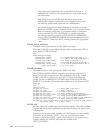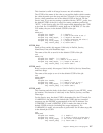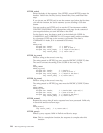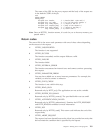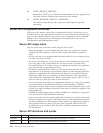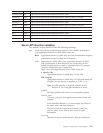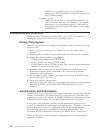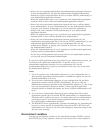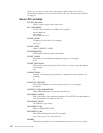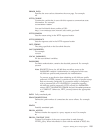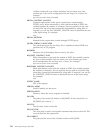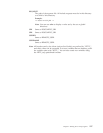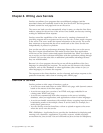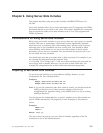values you can set or create when processing a client request. For a list of
environment variables you can use with Server API, see “Environment variables”
on page 13.
Server API variables
ACCEPT_RANGES
Used to accept ranges other than bytes.
ALL_VARIABLES
All the CGI environment variables. For example:
ACCEPT_RANGES ON
AUTH_STRING
CLIENT_ADDR 9.67.84.3
CLIENT_ADDR
IP address for the client. For example:
9.67.193.2
CLIENT_HOST
Same as REMOTE_ADDR.
CLIENTMETHOD
HTTP method that is used in the request.
CLIENT_NAME
Host name of the machine making the request. For example:
kevin
CLIENT_PROTOCOL
Name and version of the protocol the client is using to make the request.
For example:
HTTP
CONNECTIONS
Number of connections being served, or number of active requests. For
example:
15
CONTENT_CHARSET
This is the character set of the response for text/*. For example:
US ENGLISH
CONTENT_TYPE_PARAMETERS
Other MIME attributes, but not the character set.
DOCUMENT_NAME
This is the name of the topmost document. If the HTML was generated by
CGI, this contains the name of the CGI.
DOCUMENT_ROOT
As defined by pass rules.
DOCUMENT_URI
Same as DOCUMENT_URL.
DOCUMENT_URL
The Uniform Request Locator. For example:
http://www.anynet.com/xuserk/main.htm
EXPIRES
Defines the expiration for documents that are stored in a proxy’s cache.
124 Web Programming Guide V4R5



